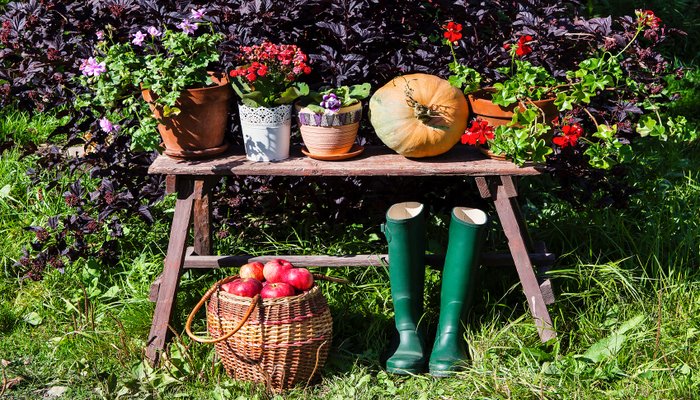Fall gardening involves some different techniques than summer gardening. The following tips, ideas and suggestions can help you get the largest harvest and the most enjoyment from your fall garden.
Location
It is recommended that a fall garden be planted in well-drained soil and in a sunny location. There is less sunlight during the fall season. Therefore, if possible, consider relocating your fall garden to a different spot. If you are growing your fall garden in containers, simply put them in a different location. Another way to gain the maximum benefit from the sun during the fall is to construct a raised bed garden in a sunny area.
Planting Your Vegetables
You can direct sow the seeds for your fall garden or buy transplants. Be sure that you choose fall plants that are hardy enough to thrive in your area. It’s also a good idea to plant vegetables that can be harvested at different times throughout the season. Kale, radishes and many varieties of lettuce mature quickly. You can be enjoying these while waiting for some of the other fall vegetables to reach the harvesting stage. If you are planting your fall garden in the same location as your summer garden, it’s essential that you remove old plants, weeds and debris left from your summer garden, before you put anything into the ground. You will also want to water the garden well and add mulch once you’ve completed your planting.
Be Prepared
Each growing season has its own set of challenges for a gardener. Just because summer is gone, that doesn’t mean the insects have disappeared. Your fall garden plants can easily be damaged or destroyed by grasshoppers, cabbage worms, aphids, cutworms or whatever pests reside and thrive in your area. Some gardeners dutifully hand -pick some of the pests off of their plants. If you have a large garden, that can be a time-consuming method of pest control. Organic pesticide is an effective way to win the battle over fall garden pests. It’s a good idea to purchase the organic pesticide when you purchase your plants. Being prepared puts you ahead of a potentially destructive situation.
When you grow a fall garden, you’ll also need to be prepared for the arrival of frost. Floating row covers can be placed in the garden when the likelihood of frost is predicted. These covers can also be used to protect your plants from damage by certain insects. If you are growing your fall garden in containers, you’ll need to relocate them to a covered area when frost is predicted.
Bulbs
Fall is the time of year to plant bulbs. The bulbs you plant now will provide a burst of color to your landscape when spring arrives. Be sure to read the planting instructions for the different types of bulbs you purchase. Generally, you should plant them in a sunny location with well-drained soil. A low nitrogen fertilizer such as 9-6-6 is often recommended for the area where you plant the bulbs.
With these simple tips, you can enjoy your garden in the fall and beyond.
If you liked this, you might also enjoy…
